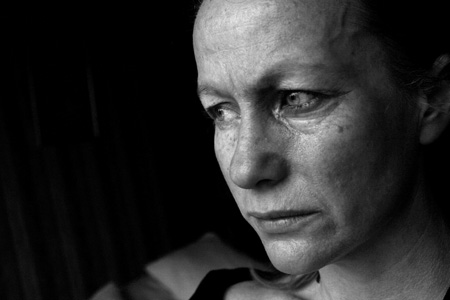Depression
Overview
 Depression comes in many different forms, including minor, psychotic and bi-polar that in general can be described as a condition typically with a lack of energy and challenges in maintaining concentration or interest in life. It is often accompanied by feelings of hopelessness and inadequacy. Its cause can be either neurological based or due environmental experiences. According to the NIMH, major depressive disorder is one of the most common mental disorders in the United States with 6.7% of the US adult population having suffered from a depressive disorder lasting 12 months.
Depression comes in many different forms, including minor, psychotic and bi-polar that in general can be described as a condition typically with a lack of energy and challenges in maintaining concentration or interest in life. It is often accompanied by feelings of hopelessness and inadequacy. Its cause can be either neurological based or due environmental experiences. According to the NIMH, major depressive disorder is one of the most common mental disorders in the United States with 6.7% of the US adult population having suffered from a depressive disorder lasting 12 months.
Team Leaders
The BFE is privileged to work with many clinicians, from a wide range of practices, that treat the many forms of depression. We do not look to any specific team leader for this area of focus, so we leave it to you to examine the many presenters of educational content and software authors to decide what perspective and techniques work best for you.
Education
The BFE is working hard to expand our offerings of educational content related to the treatment of depression. Currently, these are the recorded presentation we have to offer in our directory:
Depression: Retraining the Brain Webinar Recording: In this 1-hour webinar, Lindsay Hollmuller demonstrates how retraining the brain through neurofeedback can assist in modifying brain wave patterns associated with depression.
Dr Swingle Depression & Mood Disorders Webinar Recording: Dr. Swingle offers his insights into the identification and neurological correlates of depression, which includes descriptions of the various types of depression, according to results of the ClinicalQ assessment.
Software
The BFE has worked with many practitioners to encapsulate their different methodologies into BFE software suites for assessment and/or training of individuals suffering from depression and other mood disorders. All of these methods are for a wide variety of disorders that also include depression. Click on the links below to learn more about the techniques developed by experts in the field.
Setting Up for Clinical Success and Specialized Application Scripts by Dr. Lynda and Michael Thompson
From two of the top leaders in the field biofeedback and neurofeedback, their methodology developed and applied at their ADD Centre in Toronto, was packaged into these two software suites. Applicable to depression and a variety of mood disorders, their software suites are used to aid individuals with said disorders as well as a variety of other conditions.
ClinicalQ and BrainDryvr by Dr. Paul G Swingle
This method supports techniques developed by Dr. Paul Swingle from over 30 years of practice and teaching in the field of psychology and neurotherapy. His method utilizes a clinical database and includes the use of harmonics for training. Applicable to depression and mood disorders his Clinical Q Assessment evaluates for various sub-types of depression whether it be frontal disregulation or reduces Theta at the back of the head.
Integrated Neurofeedback by Dr. Francois Dupont
The software suite is used as a neurofeedback tool, following assessment. The suite features simple training sessions for new clinicians or complex integration for experienced therapists. Applicable to depression, including various sub-types, this methodology is also applicable to a wide spectrum of disorders.
Troubled Youth by Linda Walker, MHR, LPC
In this suite, Ms. Walker has shared her eclectic training style and knowledge of a wide variety of biofeedback and neurofeedback therapeutic methods based on her experience working with troubled youth and their families both in the public and private sectors. Her treatment population has notable markers for depression as are common with individuals that have problems in the education system, as well as paths marked with trauma from abuse, loss or family chaos.
Learn More
BFE Social Media


